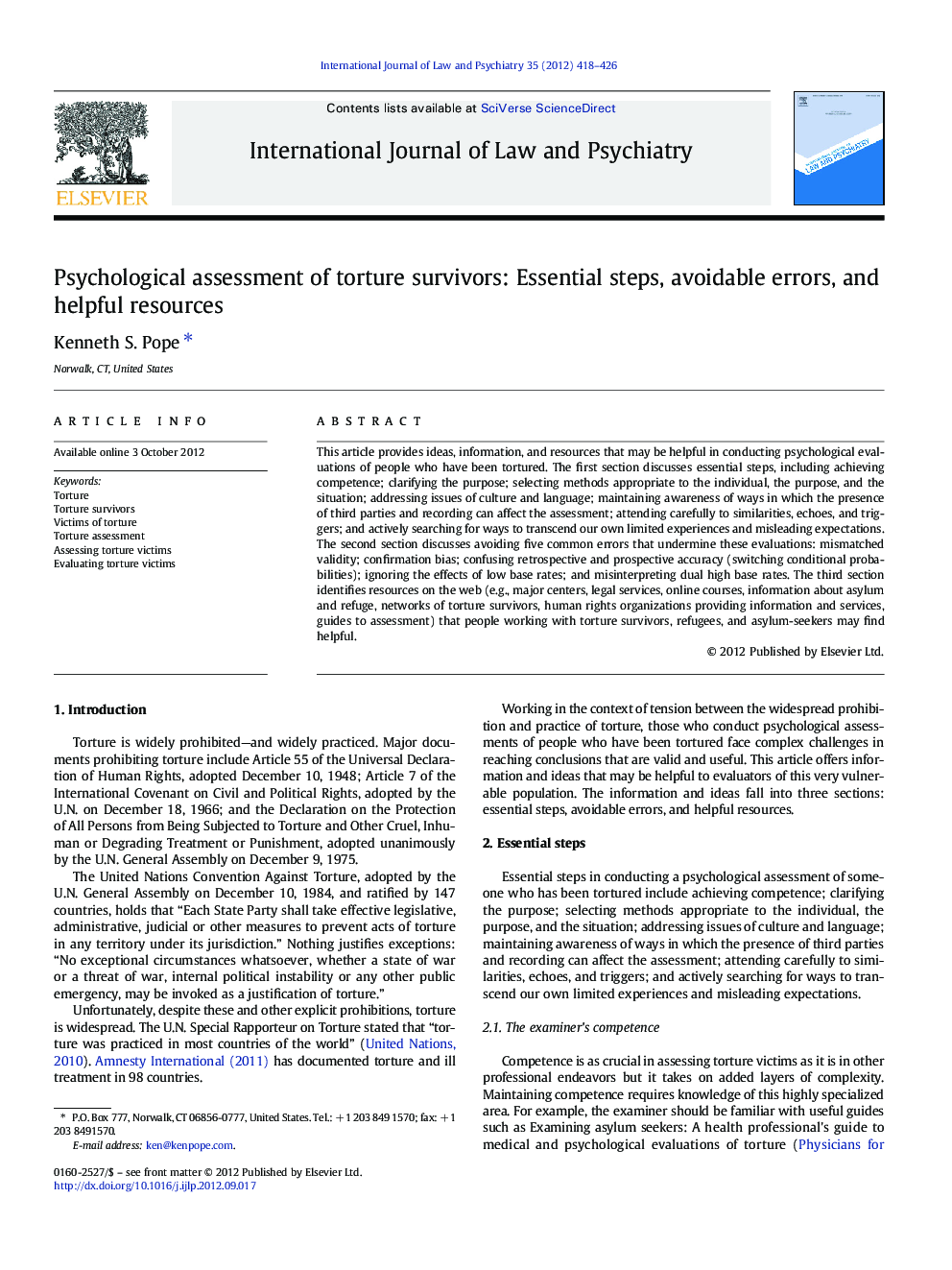| Article ID | Journal | Published Year | Pages | File Type |
|---|---|---|---|---|
| 100941 | International Journal of Law and Psychiatry | 2012 | 9 Pages |
This article provides ideas, information, and resources that may be helpful in conducting psychological evaluations of people who have been tortured. The first section discusses essential steps, including achieving competence; clarifying the purpose; selecting methods appropriate to the individual, the purpose, and the situation; addressing issues of culture and language; maintaining awareness of ways in which the presence of third parties and recording can affect the assessment; attending carefully to similarities, echoes, and triggers; and actively searching for ways to transcend our own limited experiences and misleading expectations. The second section discusses avoiding five common errors that undermine these evaluations: mismatched validity; confirmation bias; confusing retrospective and prospective accuracy (switching conditional probabilities); ignoring the effects of low base rates; and misinterpreting dual high base rates. The third section identifies resources on the web (e.g., major centers, legal services, online courses, information about asylum and refuge, networks of torture survivors, human rights organizations providing information and services, guides to assessment) that people working with torture survivors, refugees, and asylum-seekers may find helpful.
